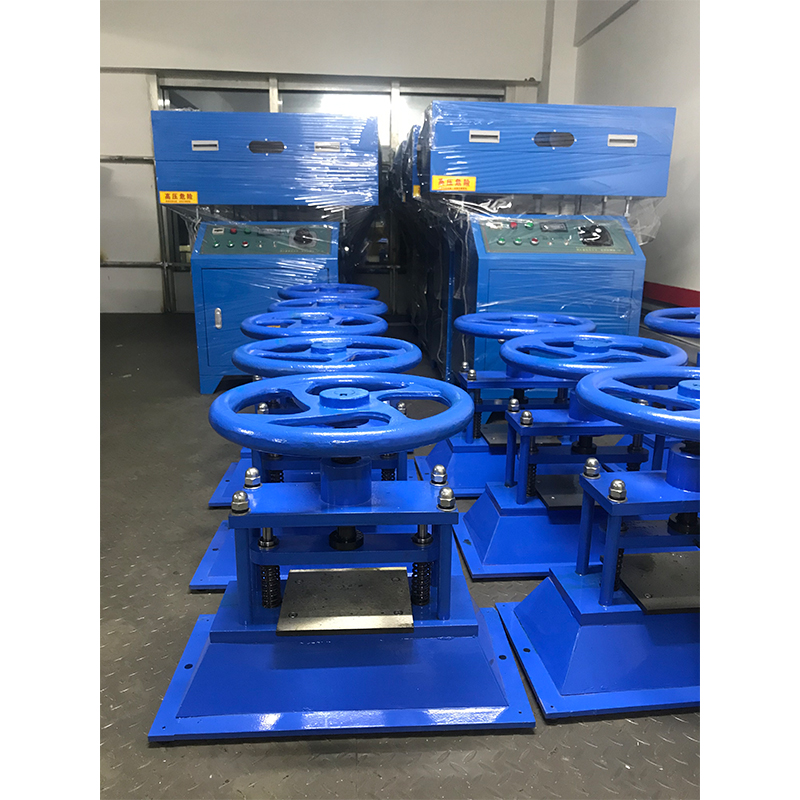Development of a High Voltage Spark Testing Machine for Power Frequency Applications and Safety Evaluations
Understanding Power Frequency Spark Testing Machines
Power frequency spark testing machines are crucial tools utilized in various industries, particularly in electrical insulation testing. These machines are designed to assess the quality and integrity of insulation materials by applying a high voltage at the power frequency level, usually 50 or 60 Hz. This testing process helps ensure the safety and reliability of electrical components, ranging from cables to transformers and switchgear.
Principle of Operation
The principle behind power frequency spark testing is relatively straightforward. The machine generates a high voltage alternating current (AC) that is applied to the insulation of the device or material under test. The voltage level is typically much higher than the operational voltage of the equipment, allowing the tester to determine whether the insulation can withstand potential electrical stresses without failing.
During the test, as the voltage increases, there may be a point where the insulation fails, leading to a breakdown, commonly referred to as a spark. This breakdown can be observed, and the test equipment typically has indicators to show when failure occurs. The primary goal of this testing is to identify weak points in the insulation that could lead to electrical failures under normal operating conditions.
Applications
Power frequency spark testing machines are employed in various applications. In the manufacturing of electrical equipment, these machines are used to test components like wires, cables, transformers, and circuit breakers. The testing process guarantees that materials meet safety regulations and performance standards before they are deployed in the field.
Moreover, these machines are vital for quality control in production lines, ensuring that each item produced adheres to strict insulation standards. They are also used in maintenance programs to periodically assess aging or degrade insulation in existing equipment. By identifying weaknesses early, companies can mitigate the risk of failures that could lead to costly downtimes or safety hazards.
power frequency spark testing machine

Advantages
One of the significant advantages of using power frequency spark testing machines is their ability to detect faults that might not be apparent under regular operating conditions. The high voltage testing simulates severe conditions that the dielectric material may encounter throughout its service life. Furthermore, these machines are straightforward to operate, often featuring automated systems that streamline the testing process and reduce the potential for human error.
This type of testing is also non-destructive. While it does stress the insulation, it does not typically damage it, allowing materials to be tested repeatedly. This feature is beneficial for manufacturers keen on performing routine quality control checks without compromising their products.
Limitations
While power frequency spark testing provides significant advantages, it also has limitations. The testing typically cannot assess the long-term reliability of insulation material under various environmental conditions; thus, it should be used as part of a broader testing strategy that includes other methods, such as dielectric loss testing and partial discharge measurements.
Moreover, the high voltage applied during spark testing may induce dielectric breakdown in materials that have been previously compromised, making it essential to have a thorough inspection before conducting tests. Additionally, certain materials may be more sensitive to high-voltage impacts, which could lead to misleading results if not handled properly.
Conclusion
In conclusion, power frequency spark testing machines play an essential role in ensuring the safety and reliability of electrical insulation materials. By providing a means for manufacturers and maintenance teams to evaluate the integrity of insulation, these machines contribute significantly to the overall performance and safety of electrical systems. Despite their limitations, they remain a cornerstone in the electrical testing landscape, embodying the commitment to quality and safety in engineering practices.
-
The Role of Tensile Force Testers in Quality Control and Material Science
NewsAug.01,2025
-
Maintenance and Safety Tips for Aging Ovens
NewsAug.01,2025
-
Density Balance in Forensic Science
NewsAug.01,2025
-
Advanced Optical Measurement Technologies
NewsAug.01,2025
-
A Buyer’s Guide to Tensile Test Machines
NewsAug.01,2025
-
Why the Conductor Resistance Constant Temperature Measurement Machine Redefines Precision
NewsJun.20,2025
 Copyright © 2025 Hebei Fangyuan Instrument & Equipment Co.,Ltd. All Rights Reserved. Sitemap | Privacy Policy
Copyright © 2025 Hebei Fangyuan Instrument & Equipment Co.,Ltd. All Rights Reserved. Sitemap | Privacy Policy
